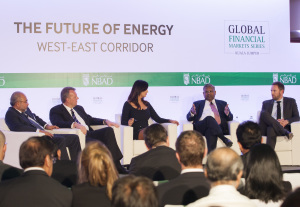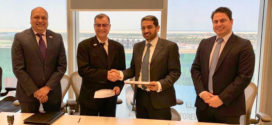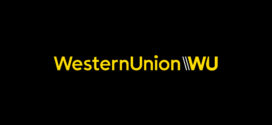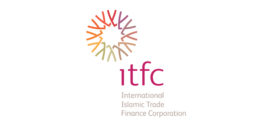- Low oil prices, a short-term concern; demand to grow in the medium to long term
- Good opportunity to de-subsidise energy and economic reforms
- Panel comprised Tan Sri Rastam Mohd Isa of the Institute of Strategic & International Studies, Sarawak Energy’s Datuk Torstein Dale Sjotveit, Anthony J Jude from The Asian Development Bank and Marc Mollema of NBAD

Abu Dhabi, UAE, Kuala Lumpur, Malaysia; (December 16th, 2014): The National Bank of Abu Dhabi (“NBAD”), the Middle East’s leading bank, and CNBC, the leading business and financial news network, hosted a panel of leading energy experts to discuss the future of energy for Asia, in Kuala Lumpur on 15 December.
The panellists agree that low oil price is a short-term concern and the demand will grow in the medium-to-long term. They highlighted that oil production is no longer cheap and the high funding costs of some producers. They also agree that low oil prices represent a good opportunity to many governments to de-subsidise energy and make the necessary economic reforms.
The expert panel discussed how the fastest growing economies in the West-East corridor, which stretches from West Africa to East Asia, will finance future energy projects, both fossil fuel and renewable. They reached a conclusion that investment opportunities in this super region are ample, and commercially-sound projects will attract investors and financing. Marc Mollema, Global Head of Energy & Resources at NBAD referred to Shams 1 in Abu Dhabi, which is one of the world’s largest concentrated solar power projects, as an example of innovative projects that have secured financing.
The panellists discussed the growing dependence on sustainable energy resources in many parts of the world, and particularly in the West East Corridor economies, noting the increase in demand for both fossil and renewable resources to fuel the growth of these economies. They added that high growth economies in emerging markets such as India would take on different kinds of energy resources to meet the growth demands over the medium to long term.
The panel, “The Future of Energy; West East Corridor”, was convened at a time when Asia is at the centre of the changing global energy landscape, with Asia expected to account for 88% of the growth in global oil demand to 2035 (source: OPEC).
The expert panel comprised Tan Sri Rastam Mohd Isa, CEO of the Institute of Strategic & International Studies; Datuk Torstein Dale Sjotveit, CEO of Sarawak Energy; Anthony J. Jude, Chairman of The Asian Development Bank’s Energy Committee; and Marc Mollema, Global Head of Energy & Resources at NBAD. Lisa Oake, CNBC seasoned news anchor, moderated the session.
Alex Thursby, the Group Chief Executive Officer of NBAD said, “Lower oil prices will boost trade and consumer spending which, in the medium term, will stimulate economic growth, particularly among emerging markets that are net importers of oil. It will also allow some governments to address the distortion caused by fuel subsidies.
“The UAE has worked hard to successfully diversify its economy by developing its non-oil sectors which now accounts for nearly 65% of GDP. Lower oil prices may raise short-term speculation over the ability of some governments to maintain their spending programmes, but the UAE economy is very resilient and the medium term outlook remains strong”.
Susan Yuen, NBAD’s Asia CEO and Country Head of Malaysia said,
“Our speakers presented a wide-angled perspective on challenges for fossil fuel, renewable energy, financing opportunities, energy sustainability and the impact of urbanisation on both demand and supply of energy for the future”.
“I believe the panel discussion was thought provoking and laid the foundations for the Global Financial Markets Forum (GFMF), taking place in Abu Dhabi in March 2015.”
“The Future of Energy; West East Corridor” was the first in a series of events taking place around the world as part of NBAD’s Global Financial Markets Forum (“GFMF”); the next Global Financial Markets Series events will be held in London in February 2015 and will explore the potential for Islamic finance. This will be followed by an event in Mumbai in June 2015.
In just six years, the GFMF has evolved to become the premier annual financial markets conference in the MENA region, attracting over 1,300 delegates from around the world to Abu Dhabi. In recent years, GFMF has hosted highly-distinguished speakers from all over the world, including Dr Ben Bernanke, Dr Larry Summers, James Baker, Nicholas Sarkozy, David Millibad, Jean-Claude Trichet, Niall Ferguson, Paul Volcker, Axel Weber, Dr. Nassim Nicholas Taleb, His Excellency Sheikh Sheikh Nahyan bin Mubarak Al Nahyan and His Excellency Nasser Ahmed Al Sowaidi.
The 2015 GFMF, to be held in Abu Dhabi on 1-2 March, will continue to showcase a high-calibre mix of regional and international speakers, facilitating thought-provoking discussions both on and off stage. The forum will be covered extensively by CNBC, who will be broadcasting live from their on-site studio at the Emirates
 Cash And Trade Magazine For Cash and Trade professionals in the Middle East
Cash And Trade Magazine For Cash and Trade professionals in the Middle East




